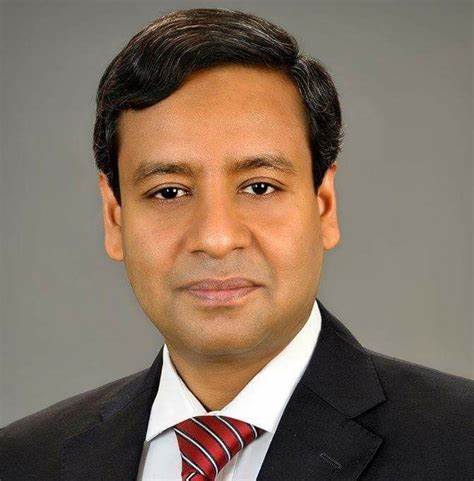By Golam Mawla Rony
After nearly a week of house arrest, I finally arrived at my workplace around noon today. Today, as I write this article on July 24, 2024, I feel like I have transformed into a different person in my thoughts and consciousness. Yet, just a week ago, I was not like this. Last Thursday was July 18. I was working at the office until 8 PM. Suddenly, the broadband internet service went down. It took another couple of hours to finish the remaining tasks at hand. Then, around 10 PM, I took a rickshaw and set off for home completely alone. The streets were empty. There was a crowd at Shahbagh. The area around Science Laboratory intersection looked like a battlefield. Debris was scattered everywhere, but for some reason, I did not feel afraid. After reaching home, I took a shower, had dinner, and in the whirlpool of the day’s fatigue, exhaustion, and regret, I fell asleep in a stupor, without even realizing when I drifted off.
My transformation began on Friday, July 19. The internet blackout, controlled media directives, and the constant helicopter presence, coupled with various rumours, instilled a fear in me. This fear wasn’t for myself, but for my country. I’ve been observing the nation since 1986 through various professional experiences, but I’ve never witnessed anything like the current political turmoil, economic crisis, and people’s anger. The blatant lies, excessive arrogance, and foolish behaviour of small-minded people in high positions during the day made me deeply worried about the fate of the country’s 180 million people.
In such a situation, time became unbearable for me. Personally, I’ve faced many difficulties in my life, and dangers were never few. But I never found time unbearable; rather, I enjoyed it even in the hardest circumstances. Even on the day I was arrested, I was writing an exciting chapter about the love stories in the Mughal harem at the office of Bangladesh Pratidin. When I was taken to prison and entered Kashimpur Jail at 2 AM, I was more eager to find out where the scent of the Hasnahena flowers was coming from than to think about everything else. In other words, I always tried to enjoy time, even in the toughest moments. But since Friday, July 19, I lost my creative imagination, which I wouldn’t have realized had I not gone out on the streets today.
Today, as I went out, I saw many contradictory scenes. Rickshaws were running freely, some shops were open, but the empty shopping centres seemed to be crying in unison with the shopkeepers and the streets. Usually, when I take a rickshaw, I chat with the rickshaw puller, greet passersby, and don’t ignore beggars. But today, I can’t express what I felt. Combining what I saw and what happened in my mind over the past week, I felt like doing something similar to what Bibhutibhushan Bandyopadhyay and Satyajit Ray did in Pather Panchali. When my rickshaw passed Nilkhet Police Station, I saw a lock on the gate. A little further, in front of the Nilkhet Working Women’s Hostel, I was amazed by the courage of the working women. While the police station’s door was locked due to fear and insecurity, the women’s hostel’s main gate was open.
As mentioned earlier, since last Friday, a mental barrenness had taken over my thought process. My aesthetic sense had vanished, and I lost my appetite and interest in music, poetry, and literature. The fear of helicopters had settled in my body and mind. But today, being on the streets, strange questions started to arise in my mind. The first thing that struck me was the severe unrest in areas like Sayedabad, Jatrabari, Shanir Akhra, Narayanganj, and Signboard due to the anti-quota movement. Other affected areas included Mohammadpur, Bosila, Savar, Badda Road, Mirpur-10, Uttara, Gazipur, and briefly, Lalbagh. Besides, Rampura and Banasree were also turbulent.
Interestingly, the government or state institutions attacked by miscreants weren’t in terrible conditions. Particularly, the attacks and arson at the Mahakhali Bridge Building, BRTA Building, and Health Directorate made no sense to me. Secondly, Metro Rail is one of the most popular government projects of the current era. The vandalism at the Mirpur Metro Rail stations is unbelievable. Extensive preparation, experience, and a guarantee of safe escape are needed to commit such acts. Touching the high-voltage electrical connections in the Metro Rail equipment and surviving is impossible.
Moreover, the Metro Rail is a highly sensitive area, comparable to places like Dhaka Cantonment’s arsenal, the Chief of Army Staff’s residence, Bangabhaban, Ganabhaban, Padma Bridge, Betar Bhaban, and BTV Bhaban. Understanding the level of expertise, preparation, and guarantee required for such attacks doesn’t need much scholarly insight.
Additionally, the Metro Rail, BRTA, and Bridge Building fall under the Ministry of the General Secretary of the Awami League, Obaidul Quader. After the incident, he didn’t visit the sites. During the curfew, the head of the Metro Rail project, a close associate of Obaidul Quader, had his car burned when he went to inspect the damaged station. This incident defies reason.
Obaidul Quader has many controversies and conflicts within the party and government. Similarly, the new Health Minister faces immense dissatisfaction from the bigwigs in the health sector due to corruption. Therefore, the sabotage at the old Health Directorate building known for health corruption cannot be a simple event.
Besides the aforementioned damages, the Bangladesh Police suffered the most dangerous losses. The public outrage against the police for over a decade of misuse of power, excessive force, and rampant corruption is unparalleled. This is not comparable to any past public outrage in Bangladesh or anywhere else in the world. The full extent of what happened behind the scenes during the anti-quota movement may come to light in the future. However, the damage done to the police’s psyche, family life, social standing, and professional life will take decades to recover from.
We’ve reached the final part of our discussion. The observations shared so far are just a glimpse of what I saw and thought during my rickshaw ride from home to the workplace today. To write in detail would require composing an epic. So, let’s move to the main topic.
The Awami League has long promoted itself as a smart government. Their handling of the ongoing violence through internet shutdown and digital curfew before trying conventional curfew with army deployment has exposed their weakness, incompetence, and helplessness in an unprecedented way. Their attempt to manage the situation with a smart curfew has shown their vulnerabilities, making it impossible to recover in this lifetime.
Courage spreads like an infectious virus among people, and once a person, group, or nation becomes brave, there is no alternative but to achieve victory. Conversely, once someone is afraid, it is impossible to turn back. Being inherently timid or becoming fearful due to circumstances are not the same. An inherently timid person can become extremely brave in any situation, while a brave person can also become fearful suddenly, but it is temporary. Once the fearful situation passes, the timid remain timid, and the brave regain their courage.
When someone gets entangled in their own misdeeds, losing faith in themselves and perceiving everyone as characterless due to their own lack of integrity, they become unbalanced. To escape this state, they constantly wear a mask, wield the whip of oppression, and surround themselves with brutal, cruel animals for defense. If their opponent breaks through the wall of oppression and the animal guard to face them, the extent of their panic and rush to the final consequence can be understood by looking at Rabindranath’s Raktakarabi, Satyajit Ray’s Hirak Rajar Deshe, Shakespeare’s Hamlet, or the Greek tragedy Oedipus.
Author: Former Member of Parliament of Bangladesh.










